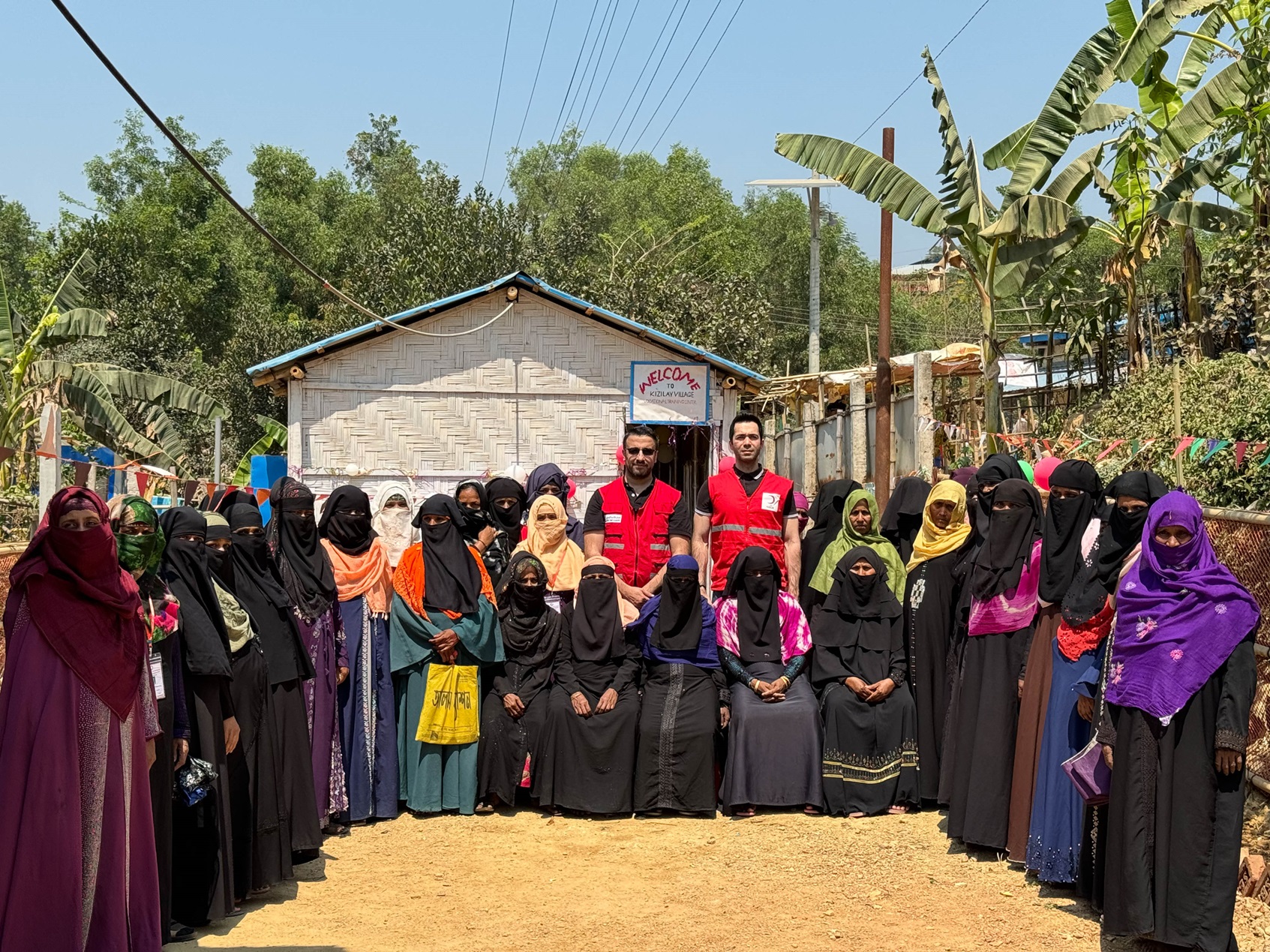Cox’s Bazar is home to about one million Rohingya refugees who fled persecution and violence as part of a deadly crackdown on the Muslim population in Myanmar.
Qatar Red Crescent Society (QRCS) is empowering communities in eight countries this year by implementing 20 livelihood projects under a QAR 17 million initiative, launched in Bangladesh on Monday.
The initiative is set to benefit at least 44,000 people in Yemen, Niger, Sudan, Somalia, Bangladesh, Lebanon, Jordan, and Iraq.
The project aims to empower the targeted communities through training programmes covering mobile maintenance, sewing, carpentry, sheep farming, and household utensil manufacturing.
QRCS launched the initiative on Monday in Cox’s Bazar District, southern Bangladesh, where 1,000 women from poor communities will receive handicraft training to achieve self-sufficiency.
The launch cooperated with the Turkish Red Crescent and Bangladesh Red Crescent Society. The training will cover fishery manufacturing, poultry farming, indoor farming, and sewing, according to QRCS.
“Earning a living is central to a better quality of life and financial independence for those in need. By having a permanent source of income, they become able to meet their basic needs and achieve family security,” Qatar’s state news agency separately reported.
Cox’s Bazar is home to about one million Rohingya refugees who fled persecution and violence as part of a deadly crackdown on the Muslim population in Myanmar since 2017. The United Nations previously slammed the attacks as a “textbook example of ethnic cleansing.”
Rohingya refugees are the world’s largest stateless population, according to the UN.
As of September 2023, 965,467 Rohingya refugees have been registered by the Government of Bangladesh and the UN refugee agency (UNHCR). Children represent 52 percent of the total figure.
In March 2023, the UN appealed for $876 million to support Rohingya refugees in Cox’s Bazar, Bhasan Char, and Bangladeshi host communities. However, as of 6 August, the 2023 Joint Response Plan was only 28 percent funded.
Meanwhile, Qatar has continued to send aid to Rohingya refugees in collaboration with international agencies. In 2018 alone, Doha donated more than $8 million in aid to the UNHCR.
In May last year, Qatar Charity announced plans to rebuild 326 homes for Rohingya refugees in the Balukhali camp following the tragic fires that destroyed the shelter of thousands in March.
The fires displaced an estimated 12,000 refugees while destroying more than 2,000 homes, per UN figures.
The fires affected more than 15,000 individuals, including thousands of children, at the vulnerable refugee camp.
A panel that investigated the blaze referred to the fires as a “planned act of sabotage,” after publishing a report based on the testimonies of 150 eyewitnesses.







